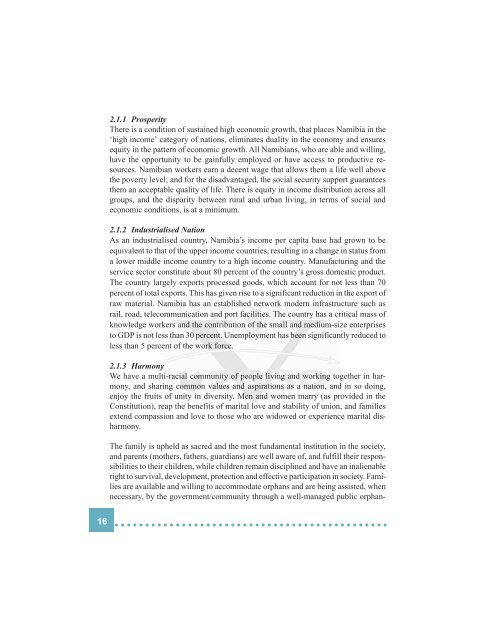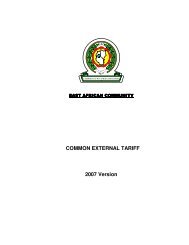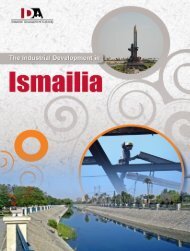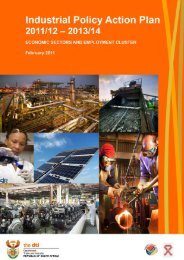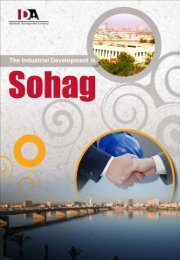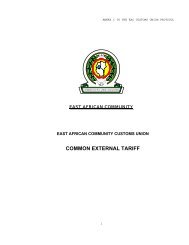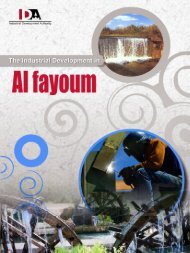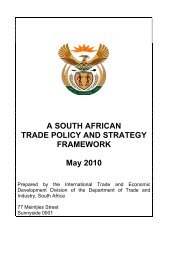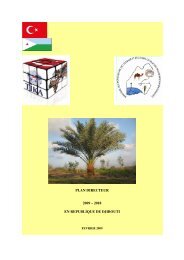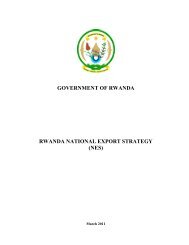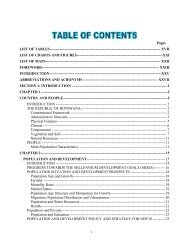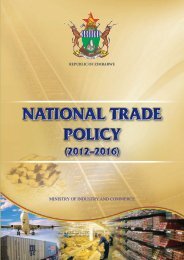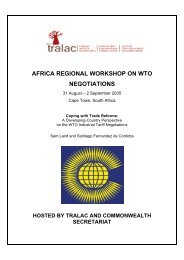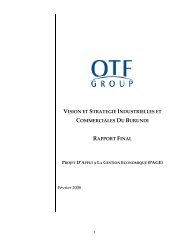Namibia Vision 2030 - Ministry of Environment and Tourism
Namibia Vision 2030 - Ministry of Environment and Tourism
Namibia Vision 2030 - Ministry of Environment and Tourism
Create successful ePaper yourself
Turn your PDF publications into a flip-book with our unique Google optimized e-Paper software.
2.1.1 Prosperity<br />
There is a condition <strong>of</strong> sustained high economic growth, that places <strong>Namibia</strong> in the<br />
‘high income’ category <strong>of</strong> nations, eliminates duality in the economy <strong>and</strong> ensures<br />
equity in the pattern <strong>of</strong> economic growth. All <strong>Namibia</strong>ns, who are able <strong>and</strong> willing,<br />
have the opportunity to be gainfully employed or have access to productive resources.<br />
<strong>Namibia</strong>n workers earn a decent wage that allows them a life well above<br />
the poverty level; <strong>and</strong> for the disadvantaged, the social security support guarantees<br />
them an acceptable quality <strong>of</strong> life. There is equity in income distribution across all<br />
groups, <strong>and</strong> the disparity between rural <strong>and</strong> urban living, in terms <strong>of</strong> social <strong>and</strong><br />
economic conditions, is at a minimum.<br />
2.1.2 Industrialised Nation<br />
As an industrialised country, <strong>Namibia</strong>’s income per capita base had grown to be<br />
equivalent to that <strong>of</strong> the upper income countries, resulting in a change in status from<br />
a lower middle income country to a high income country. Manufacturing <strong>and</strong> the<br />
service sector constitute about 80 percent <strong>of</strong> the country’s gross domestic product.<br />
The country largely exports processed goods, which account for not less than 70<br />
percent <strong>of</strong> total exports. This has given rise to a significant reduction in the export <strong>of</strong><br />
raw material. <strong>Namibia</strong> has an established network modern infrastructure such as<br />
rail, road, telecommunication <strong>and</strong> port facilities. The country has a critical mass <strong>of</strong><br />
knowledge workers <strong>and</strong> the contribution <strong>of</strong> the small <strong>and</strong> medium-size enterprises<br />
to GDP is not less than 30 percent. Unemployment has been significantly reduced to<br />
less than 5 percent <strong>of</strong> the work force.<br />
2.1.3 Harmony<br />
We have a multi-racial community <strong>of</strong> people living <strong>and</strong> working together in harmony,<br />
<strong>and</strong> sharing common values <strong>and</strong> aspirations as a nation, <strong>and</strong> in so doing,<br />
enjoy the fruits <strong>of</strong> unity in diversity. Men <strong>and</strong> women marry (as provided in the<br />
Constitution), reap the benefits <strong>of</strong> marital love <strong>and</strong> stability <strong>of</strong> union, <strong>and</strong> families<br />
extend compassion <strong>and</strong> love to those who are widowed or experience marital disharmony.<br />
The family is upheld as sacred <strong>and</strong> the most fundamental institution in the society,<br />
<strong>and</strong> parents (mothers, fathers, guardians) are well aware <strong>of</strong>, <strong>and</strong> fulfill their responsibilities<br />
to their children, while children remain disciplined <strong>and</strong> have an inalienable<br />
right to survival, development, protection <strong>and</strong> effective participation in society. Families<br />
are available <strong>and</strong> willing to accommodate orphans <strong>and</strong> are being assisted, when<br />
necessary, by the government/community through a well-managed public orphan-<br />
16


